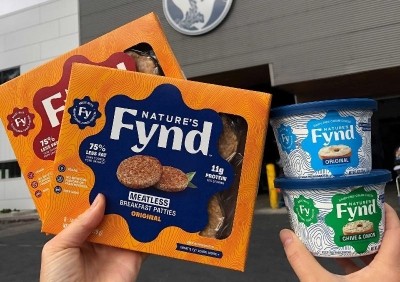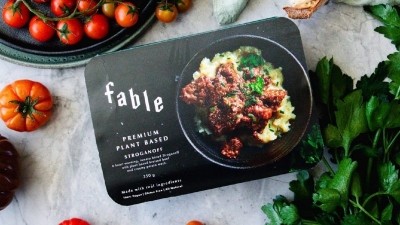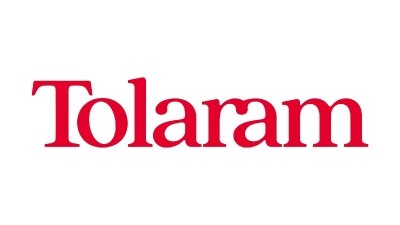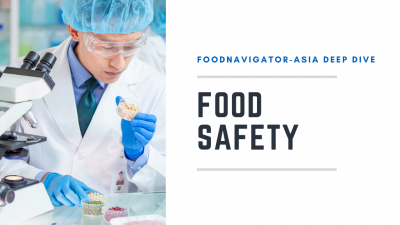Plant-based label war Down Under: Labelling battle heats up as alt protein and meat sectors clash over research
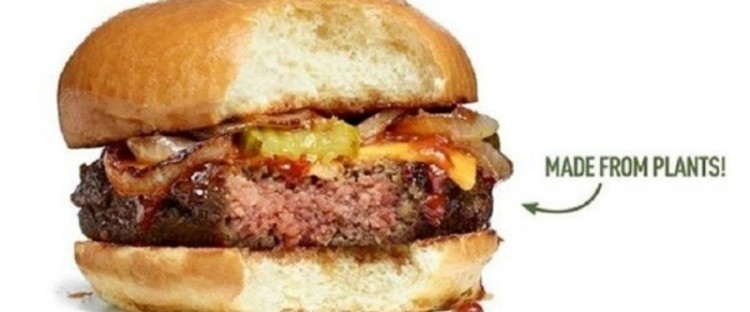
The debate began in earnest last year when Australian Minister for Agriculture David Littleproud hosted a roundtable to discuss the issue, which was deemed by the plant-based industry to have ‘unbalanced representation’ in favour of the traditional meat and dairy industries.
Following this, the Australian government has also held a public inquiry into the use of traditionally meat-related terms such as ‘beef’, ‘meat’, ‘burgers’ and so on for plant-based product labelling, again drawing heated debate between traditional meat and dairy producers and the plant-based sector.
Since then, both the plant-based and traditional sectors have been engaging in a battle of sorts to put out their own research to further argue their points. Representing the former is plant-based advocacy body Food Frontier, which analysed over 250 plant-based meat alternative products in Australian supermarkets.
It found that all these products used front-of-pack labels used at lest one descriptive term such as ‘plant-based’ to clearly show they were free of meat, and 85% of products used two or more such terms to indicate this.
“In addition, 66% of products do not use an animal meat term (e.g. beef or chicken) in the product name, but instead terms that use the product format (e.g. burger or mince) which indicate their intended use,” said the report.
Food Frontier CEO Thomas King said that: “There’s a lot of misinformation being circulated about labelling of plant-based products, so it’s good to have some comprehensive data to support the facts.
“We strongly support clear food labelling, but this data shows most products use clear and commonsense labelling, with just a very small number using the kind of labelling being called into question – these are not representative of the hundreds of products in the market.”
Research published earlier had also declared existing plant-based labelling ‘fit-for-purpose’ and stated that 91% of Australians and 94% of New Zealanders ‘had never mistakenly purchased a plant-based product thinking it was its animal-based counterpart, and vice versa’.
Still confusing
In contrary, on the conventional meat industry end pork industry body Australian Pork Limited (APL) also conducted its own survey which found that some 50% of respondents to believe a product was made of pork when shown plant-based roast pork packaging, which was deemed an ‘unacceptable risk’ to the reputation of the industry and its products.
“We continue to support the wider success of Australian agriculture but it is important that consumers have access to labelling that clearly lists raw ingredients and just as importantly whether or not they are home grown or imported,” said APL CEO Margo Andrae.
“Truth in labelling will not only ensure that consumers are not inadvertently misled by labelling but also will ensure all proteins on our shelves meet the same significant compliance standards that the meat and dairy sectors currently adhere to.”
“The bottom line is Australian consumers should be able to make informed purchasing decisions when purchasing quality food products they love and trust.”
Another survey, which was conducted by Pollinate and backed by the meat, poultry and seafood industries in Australia, showed 1,000 Australians five plant-based products and one conventional meat product, and asked them to respond whether the product was animal, plant or a mix of both.
The five products used were from Beyond Meat, Unreal Co, Sunfed, Next! And Plant Asia, and according to the survey some 61% of respondents incorrectly identified at least one of the five plant-based meats used in the experiment by saying it contained animal meat or was a mixed product.
“Confusion is driven by packaging and placement in supermarkets – 47% of consumers have a hard time figuring out whether a product is made of plant-based vs animal meat when looking at where the products are placed [e.g. in the meat aisle] and 45% when looking at product packaging,” said the report authors.
“Some 64% of consumers said they expect the product to contain meat if it has at least one of animal images, words like ‘beef’, ‘chicken’ and ‘lamb’ or is described as ‘meat’; whereas 56% said that plant-based meat should not be allowed to use any of these three features.”
What’s the end game?
Food Frontier has disputed the survey’s findings though, saying that the number of products used was too small and too selected to be representative of the entire industry.
“[Recent] survey results released by the meat and livestock industry [were] based on five cherry-picked products using uncommon labelling, when we know there are more than 250 available,” said King.
“We agree it’s important for the conversation to be had to ensure clarity for consumers, but the conversation must be based on evidence, not anecdotes or skewed surveys.”
The end-game is currently still hard to predict though, especially considering the differing way the situation has played out in various countries worldwide – for example in the United States, plant-based dairy firm Miyoko’s Creamery recently won its lawsuit to use conventional dairy terms after suing the California Department of Food and Agriculture for infringing on their ‘right to free speech’.
In Europe, plant-based meat is allowed to label products with conventional meat terms but not plant-based dairy, whereas in China national standards are also already in place allowing plant-based products to use conventional meat terms as long as there is a descriptor on the label informing consumers that it the product is meat-free.
In Australia, the Ministerial Forum on Food Regulation has previously twice declined to pursue changes to existing labelling regulations, most recently in November 2019, finding them fit-for-purpose – but with Minister Littleproud’s adamance in holding working groups on the topic as well as the new Senate inquiry taking place despite this, it does seem that the plant-based sector needs to gun itself up for yet another round of nomenclature challenges.
